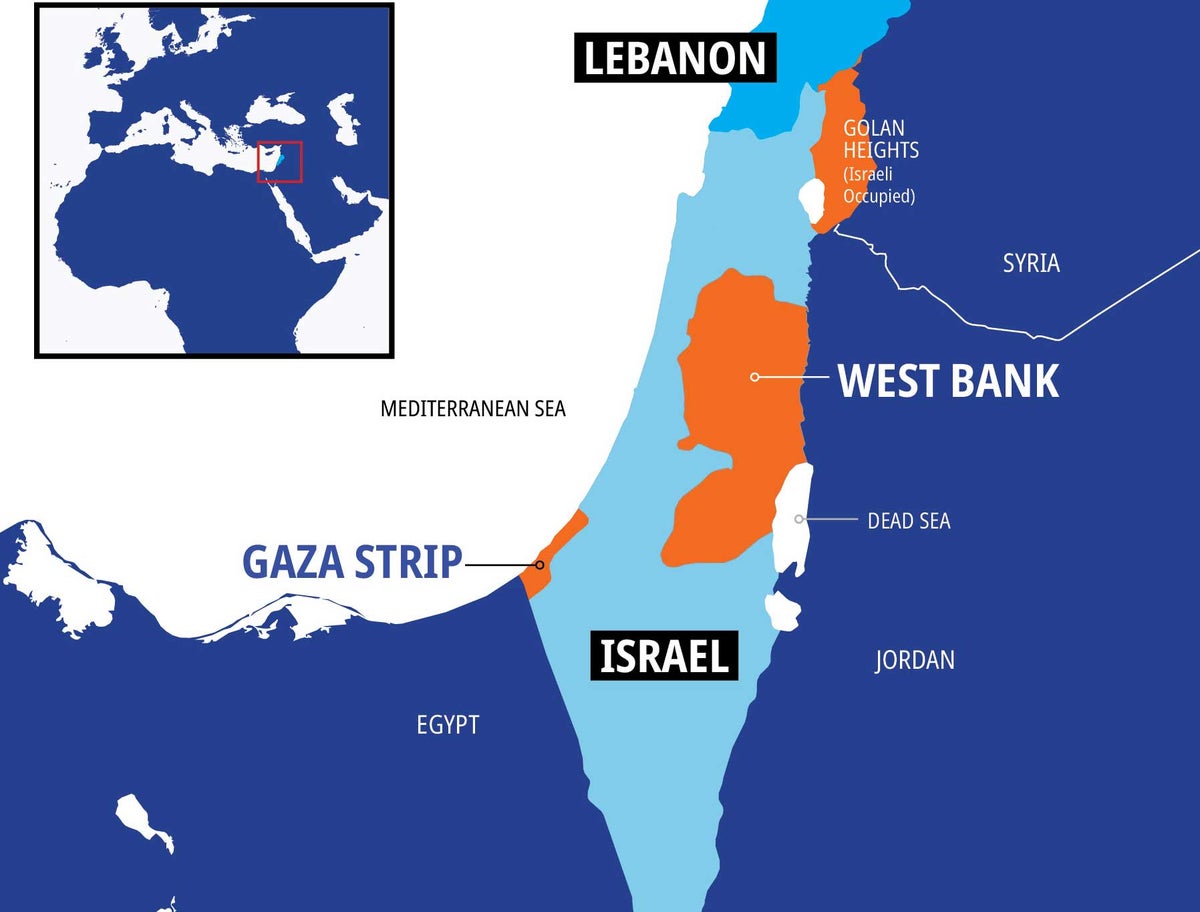
The Gaza Strip is internationally recognized as part of the Occupied Palestinian Territory and is claimed by the self-declared State of Palestine.[1] [2]
Historically, the Gaza Strip's status has been complex and contested. Following the 1948 Arab-Israeli War, the territory came under the control of the Kingdom of Egypt, which established the All-Palestine Government there, though Egypt never formally annexed it.[1] [2] During this period, Palestinians in Gaza were issued All-Palestine passports, but Egypt did not grant them citizenship.[1]
In the 1967 Six-Day War, Israel captured and occupied the Gaza Strip, initiating decades of military control.[1] [2] Despite Israel's unilateral disengagement of its military forces and dismantling of settlements in 2005, the Gaza Strip is still considered occupied by Israel under international law due to ongoing control over its borders, airspace, and sea access.[1] [3] This perspective is upheld by the United Nations, the International Court of Justice (ICJ), and numerous human rights organizations, which view the Gaza Strip as part of a single territorial unit known as the "Occupied Palestinian Territory" (OPT), alongside the West Bank and East Jerusalem.[1] [2] [4]
The State of Palestine was self-declared by the Palestine Liberation Organization (PLO) in 1988 and is recognized by 146 out of 193 UN member states, asserting its claim over the territories occupied since 1967, including Gaza.[2] The 1990s Oslo Accords established the Palestinian Authority (PA) as a limited governing authority in parts of the Palestinian territories, including Gaza.[1] However, in 2007, the Islamist movement Hamas took over the governance of Gaza after winning elections and subsequently warring with Fatah, the secular party that largely controls the Palestinian Authority in the West Bank.[1] [2] This political division means that while the internationally recognized Palestinian Authority claims sovereignty over Gaza as part of the State of Palestine, Hamas exercises de facto administrative and security control within the Strip.[2] [5]
Therefore, while the State of Palestine, recognized by a majority of the world's nations, asserts ownership and sovereignty over the Gaza Strip, its status is complicated by the ongoing Israeli occupation (as defined by international law), the internal political division with Hamas's de facto control, and the severe restrictions on movement and goods imposed by both Israel and Egypt.[1] [2] [6]
Authoritative Sources
- Gaza Strip. [Wikipedia]↩
- Occupied Palestinian territories. [Wikipedia]↩
- International Law and the Israeli Occupation. [Human Rights Watch]↩
- Legal Status of the Occupied Palestinian Territory. [United Nations Office for the Coordination of Humanitarian Affairs (OCHA)]↩
- Palestinian Political Factions and Governance. [Council on Foreign Relations]↩
- The Gaza Blockade: A Humanitarian Crisis. [Amnesty International]↩


Answer Provided by www.iAsk.ai – Ask AI.
Sign up for free to save this answer and access it later
Sign up →